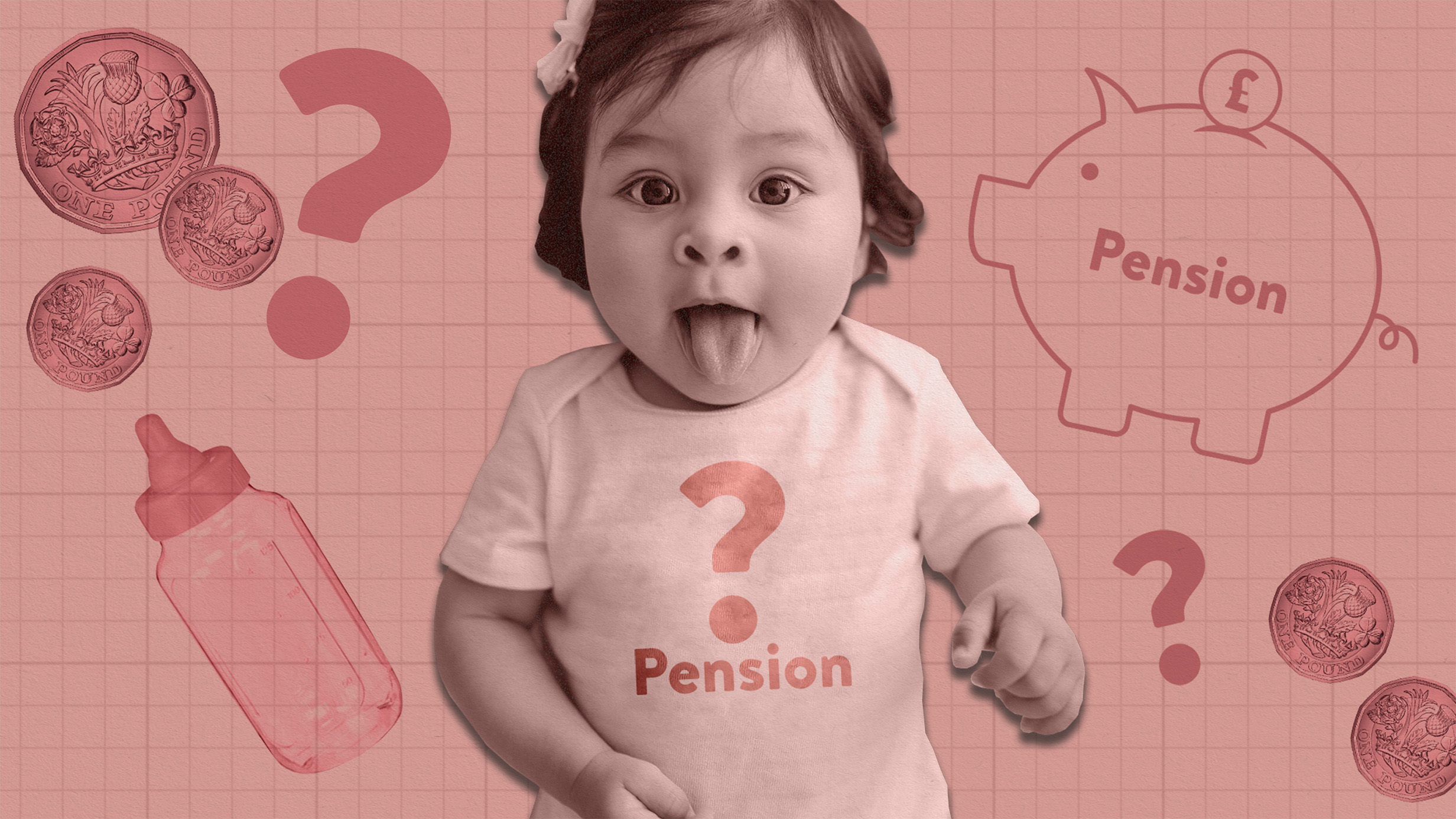How does going on maternity leave affect my pension
A 5 minute read

Having a baby means change is afoot. Get ready for car seat conundrums and an emotional whirlwind – in the best kind of way. Oh, and say sayonara to sleep. But you know all that. So, whilst you’re on maternity or paternity leave, it’s understandable that the last thing you’re thinking about is your pension. And why would you?
But, in between researching the best buggies or nursery colours, if you can spare some time to get clued up on the ins and outs of what happens to your pension when you leave to have a baby, you’ll stand yourself in good stead with your long-term financial plans.
How does maternity leave and pay work?
When you’re having a baby, you have a right to take up to a year of Statutory Maternity Leave. This is regardless of how long you’ve worked for your employer, how much you’re paid or how many hours a week you work.
Maternity leave is separate from maternity pay. Maternity pay has different rules about who can get it, and this will depend on your employer. All employers are different, and some may offer more generous maternity benefits than the Statutory minimum. To find out where you stand, check your employer’s policy. Your contract will outline the details, or you can ask your employer.
Statutory Maternity Pay (SMP) is the legal minimum your employer normally has to pay you while you’re on maternity leave. You’re entitled to Statutory Maternity Pay, or Statutory Paternity Pay (SPP), if you earn at least £123 a week on average, and you’ve worked for your employer for more than 26 weeks (when you reach the 15th week before the baby’s due date).
With SMP, you’ll be entitled to take 52 weeks off work, 39 of which you’ll be paid Statutory Maternity Pay. During the first 6 weeks, you can expect to receive 90% of your average weekly earnings, after which you’ll keep taking 90%, or £172.48 (for 2023-2024). Whichever is lower. After that, the remaining 13 weeks you take off are unpaid.
You’ll still have to pay Income Tax and National Insurance contributions on these payments.
If you’re not eligible for SMP, you might be eligible for Maternity Allowance for up for 39 weeks.
To claim maternity leave and pay, you have to tell your employer you’re going on maternity leave and request maternity at least 15 weeks before the baby’s due date.
Paternity leave and pay
With Statutory Paternity Pay, it’s much simpler. Well, simpler from a logistical and money perspective. You’ll be able to take either one or two weeks off – but only in one go. What’s more, you’ll take 90% of your average weekly earnings, or £172.48. Again, whichever is lower.
Similarly, to maternity leave and pay, your employer may offer more generous paternity benefits – so make sure you check with your company. You’ll also have to tell your employer at least 15 weeks before the baby is expected to claim paternity leave and pay.
So, how does all that affect your pension contributions?
For the mums of the world…
If you’re eligible to receive maternity pay during your leave and are paying into the workplace pension scheme (of the defined contribution kind), then for at least 39 weeks of maternity leave (possibly longer, depending on what’s agreed in your contract), your contributions will usually be based on your maternity pay, and your employer’s will base theirs on what your pay was before you left work – not forgetting any pay increases you gain during your time away.
You won’t need to do anything as your employer will make these payments automatically, providing you remain in the scheme and continue with your payments.
If you’re receiving Statutory Maternity Pay, after 39 weeks, you only have to contribute if your scheme’s rules or your employment contract state so. The same rule applies to your employer’s contributions, too.
If you’re not entitled to SMP, but are employed, it’s slightly different. Until you hit 26 weeks off, you’re not required to contribute unless you’re still being paid – and your employer’s contributions will be based on what you were paid before you went on maternity leave.
After those 26 weeks are up, and week 27 rolls around, the winds of change again roll over your pension. If any part of your leave is unpaid, your employer might not pay contributions during that time. This will be confirmed in your employment contract.
If you’re in a salary sacrifice scheme, your employer should continue to pay the entire contribution, but if your salary during your maternity leave drops below the National Minimum Wage, your employer might have to stop contributing to comply with their duty to pay you at least the National Minimum Wage.
However, it’s important to know that you can’t sacrifice your earnings so that they would fall below Statutory Maternity Pay.
For the dads to be…
Providing you’re paying into a defined contribution workplace pension; you’ll remain a member of the scheme and both you and your employer will continue to make contributions – unless you decide to stop paying in. Your contributions will be based on the paternity pay received (which could be lower than your usual salary), but your employer contributions will remain at the same level they were before you left work.
You can pause your contributions or stop paying into your pension, but this won’t necessarily mean that your employer will too. They can continue to contribute even if you don’t, but they aren’t obliged to. Pausing or stopping contributions can affect how much you’ll have in your pot in the long run, so it’s worth checking this before you make any decisions.
Remember, every employer is different and can have different policies in place, so you’ll need to check with yours.
For the Defined Benefit mums and dads…
Defined Benefit schemes – whether they’re final salary or career average schemes – will treat paid Maternity or Paternity leave as “pensionable service”. In other words, it counts towards your eventual pension.
But be aware that any additional unpaid leave might not be viewed as pensionable service, meaning that it wouldn’t count towards your pension. This could result in a lower pension when the time comes to retire, unless you’ve made extra contributions to top it up.
Different schemes may have different rules, so it’s worth speaking to your employer to work out the best course of action.
Getting prepared
With another mouth to feed, finding the spare savings to contribute to your pension during any periods out of paid work is difficult, but there’s a real incentive to keep paying into your pension. Just taking short pauses could lower your returns further down the line - and cancelling your contributions entirely can have a detrimental impact on your long-term financial plans.
There are 3 main options to help protect your pension while taking time out of work; you can increase your pension contributions before you go on maternity leave; increase your contributions when you return to work; or a combination of the two. Plus, your partner can also help.
Your partner can pay into your pension to maintain your full contributions. They can make up to 100% of your earnings, or £3600 gross – whichever is larger. Pension contributions can be boosted with 20% tax relief (of the gross amount).
Shared parental leave is another way to not just share the responsibility of raising children but also a way of ensuring long-term financial equality.
Providing that working parents meet the eligibility criteria and give 8 weeks’ notice to their employers; they can share up to up to 50 weeks of parental leave and up to 37 weeks of statutory shared parental pay between them after their child is born.
And finally, what about the State Pension?
Because maternity pay is subject to National Insurance deductions, your State Pension will still be built up. If your pay is £242 a week or more, you’ll pay National Insurance Contributions, meaning that it’ll still count towards your State Pension. Whereas, if you earn between £123 and £242 a week, you’ll be building up National Insurance credits instead – these still count towards your State Pension.
Check your State Pension by getting a statement
This information is based on our understanding of current Statutory Maternity and Paternity leave and pay, which may change.
DO NOT EDIT THIS BOX UNLESS YOU'RE NOEL

